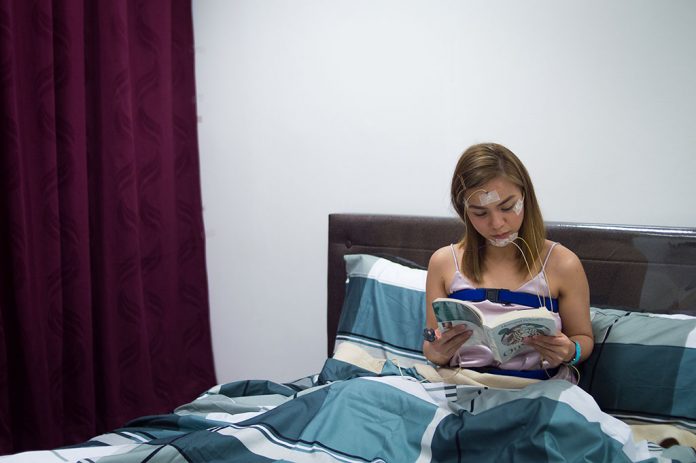For many people, the experience of being under enhanced community quarantine brought about by the COVID-19 pandemic was very stressful. The stress made people more anxious and sleepless even if they had more time on their hands to sleep and rest. In short, the pandemic has apparently made people sleep less and stress more.
According to the National Sleep Foundation, the leading expert in sleep science and health in the United States, the pandemic has disrupted our daily lives. Because of this, people find it hard to adjust to a new daily schedule or the lack of one. Additionally, people tend to oversleep. This usually leaves them groggy, short-tempered, and unfocused throughout the day.
The foundation points out that it is important to get enough quality sleep because it helps strengthen the immune system, heightens brain function, enhances your mood, and improves mental health. Here are some tips on how to sleep well during these trying times:
1. Set a schedule and routine. Establishing a routine will help bring about a sense of normalcy. This can be achieved by sleeping and waking up at the same time every day. Other activities that can be done to establish normalcy is to shower and get dressed even if you are not going out, eating meals at the same time each day, and blocking off specific time periods for work and exercise.
2. Reserve your bed for sleep. If the pandemic has forced you to work from home, choose to do it in the living room or in any part of your house except your bed. Sleep experts emphasize the importance of creating an association in your mind between your bed and sleep. Hence, it is recommended that sleep and sex be the only activities that take place in your bed.
3. Spend time outdoors. Exposure to light plays a crucial role in helping our bodies regulate sleep in a healthy way. Spend some time outside, and you will experience a better sleeping pattern. As much as possible, avoid using your electronic devices before you sleep, as this will interfere with your body’s natural sleep-promoting processes.
4. Be careful with naps. With more free time in your hands, you will be tempted to take more naps. While a short power nap early in the afternoon can be useful to some people, it’s best to avoid long naps or naps later in the day, as this will hinder nighttime sleep.
5. Stay active. Make time to take a walk outside while observing social distancing. Or you can exercise at home with the help of online sites.
If, however, you are still having problems sleeping even after following these tips, it might be time for you to consult a doctor. The Medical City Clark (TMC Clark) has a sleep unit that is manned by ENT and neurology specialists who can assess whether you have a sleeping disorder. TMC Clark launched its Sleep Laboratory, in partnership with Sleep Scienzzz Sleep Analytics and solutions that would help in the diagnosis of sleep disorders. A Polysomnography (sleep test) records your nighttime sleep patterns. Polysomnography is occasionally done during the day to accommodate shift workers who habitually sleep during the day. In addition to helping diagnose sleep disorders, polysomnography may be used to help adjust your treatment plan if you have already been diagnosed with a sleep disorder.
For more information about the sleep test and other services being offered by The Medical City Clark, you can visit www.themedicalcityclark.com or call 0917 836 3704.




